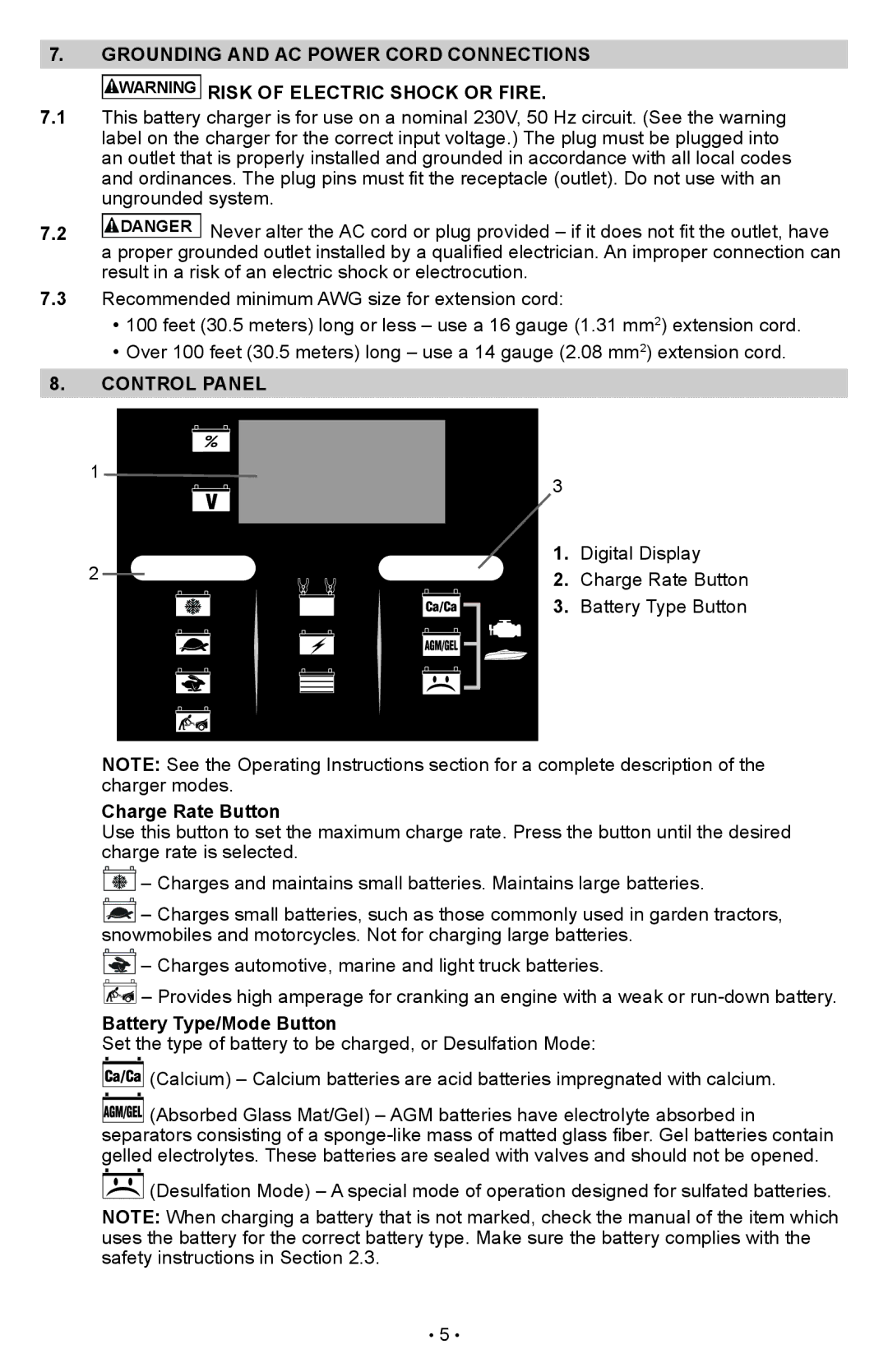
7.GROUNDING AND AC POWER CORD CONNECTIONS
WARNING RISK OF ELECTRIC SHOCK OR FIRE.
7.1This battery charger is for use on a nominal 230V, 50 Hz circuit. (See the warning label on the charger for the correct input voltage.) The plug must be plugged into an outlet that is properly installed and grounded in accordance with all local codes and ordinances. The plug pins must fit the receptacle (outlet). Do not use with an ungrounded system.
7.2 | DANGER Never alter the AC cord or plug provided – if it does not fit the outlet, have |
| a proper grounded outlet installed by a qualified electrician. An improper connection can |
result in a risk of an electric shock or electrocution.
7.3Recommended minimum AWG size for extension cord:
•100 feet (30.5 meters) long or less – use a 16 gauge (1.31 mm2) extension cord.
•Over 100 feet (30.5 meters) long – use a 14 gauge (2.08 mm2) extension cord.
8.CONTROL PANEL
1
2
3
1. Digital Display
2. Charge Rate Button
3. Battery Type Button
NOTE: See the Operating Instructions section for a complete description of the charger modes.
Charge Rate Button
Use this button to set the maximum charge rate. Press the button until the desired charge rate is selected.
![]() – Charges and maintains small batteries. Maintains large batteries.
– Charges and maintains small batteries. Maintains large batteries.
![]() – Charges small batteries, such as those commonly used in garden tractors, snowmobiles and motorcycles. Not for charging large batteries.
– Charges small batteries, such as those commonly used in garden tractors, snowmobiles and motorcycles. Not for charging large batteries.
![]() – Charges automotive, marine and light truck batteries.
– Charges automotive, marine and light truck batteries.
![]()
![]()
![]()
![]()
![]()
![]()
![]() – Provides high amperage for cranking an engine with a weak or
– Provides high amperage for cranking an engine with a weak or
Battery Type/Mode Button
Set the type of battery to be charged, or Desulfation Mode:
![]()
![]()
![]()
![]()
![]() (Calcium) – Calcium batteries are acid batteries impregnated with calcium.
(Calcium) – Calcium batteries are acid batteries impregnated with calcium.
![]()
![]()
![]()
![]()
![]() (Absorbed Glass Mat/Gel) – AGM batteries have electrolyte absorbed in separators consisting of a
(Absorbed Glass Mat/Gel) – AGM batteries have electrolyte absorbed in separators consisting of a
![]()
![]()
![]() (Desulfation Mode) – A special mode of operation designed for sulfated batteries.
(Desulfation Mode) – A special mode of operation designed for sulfated batteries.
NOTE: When charging a battery that is not marked, check the manual of the item which uses the battery for the correct battery type. Make sure the battery complies with the safety instructions in Section 2.3.
• 5 •
